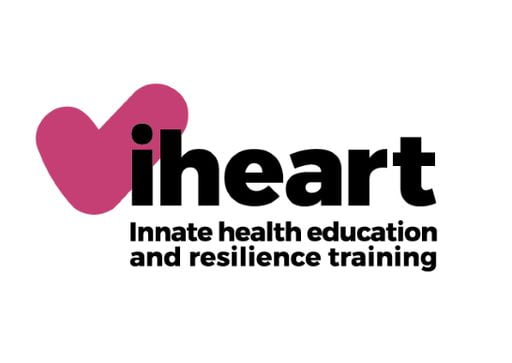“It is vital that we support the psychological health and wellbeing of children and young adults through the pandemic and beyond,” stated Professor Anthony Kessel, Honorary Professor, London School of Hygiene & Tropical Medicine and Clinical Director, National Clinical Policy, NHS England & Improvement, when speaking at the iheart mental health conference yesterday.
He added, “The conference explored how this can be achieved through prevention, specifically through education that helps avoid mental health problems arising in the first place, rather than treating those problems once they are established. This is a crucial path.”
Yesterday’s free virtual conference, “Unlocking Resilience – your psychological vaccine” was hosted by iheart, the mental health education charity, and was aimed at helping parents navigate the mental health impact of these challenging times on their children and families. The event featured prominent researchers, authors and global thought leaders who addressed the uncertainty, fear and anxiety which, exactly one year on from the start of the pandemic, seems more prevalent than ever.
The conference was opened by Ian Russell, noted mental health campaigner and advocate for technology use reform for children, who founded the Molly Rose Foundation after the tragic suicide of his 14-year-old daughter, Molly. Keynote speakers included Professor Anthony Kessel, Dr James Davies and Dr Marilyn Bowman, who addressed themes such as whether a physical health pandemic must lead to a mental health one and research showing how human beings are built to deal with adversity.
“To de-medicalise distress is not to delegitimise distress. One can honour, respect and care for profound suffering without labelling it as illness, pathology or disorder,” stated Dr James Davies in his keynote address, offering an approach which the audience of over 500 people found deeply hopeful and inspiring.
Brian Rubenstein, CEO, iheart, commented, “In the current times, so many of us are glued to the news, waiting for something or someone to save us, seemingly powerless to access our innate wellbeing. But what if, even in the midst of a global health crisis, we could empower our children with the self-belief to thrive and to give our families the confidence to overcome the fear, anxiety and isolation that seem to accompany us everywhere? What if, by unlocking the innate resilience in ourselves and those around us, we can look forward to the future – whatever it holds – with hope, confidence and optimism? We held this event to ask – and answer – these crucial questions.”
The conference also featured a series of interactive panels showcasing young people aged 18-22 as well as younger children speaking about how they have learned to unlock their own resilience despite the pandemic, and how this knowledge has helped them.
This event was a natural extension of iheart’s ground-breaking work in the field of preventative mental health education. “The event was free, in keeping with our charitable aims to make all our programmes as accessible as possible, especially for those suffering from financial hardship,” explains Brian. “Our school-based wellbeing programme has already been accessed by over 10,000 young people and educators in 15 countries across the world. This conference is an important next stage in providing much-needed support to many more people in these challenging times.”
iheart is a non-profit dedicated to helping young people and families uncover their innate mental wellbeing and resilience www.iheartprinciples.com
Biogs

